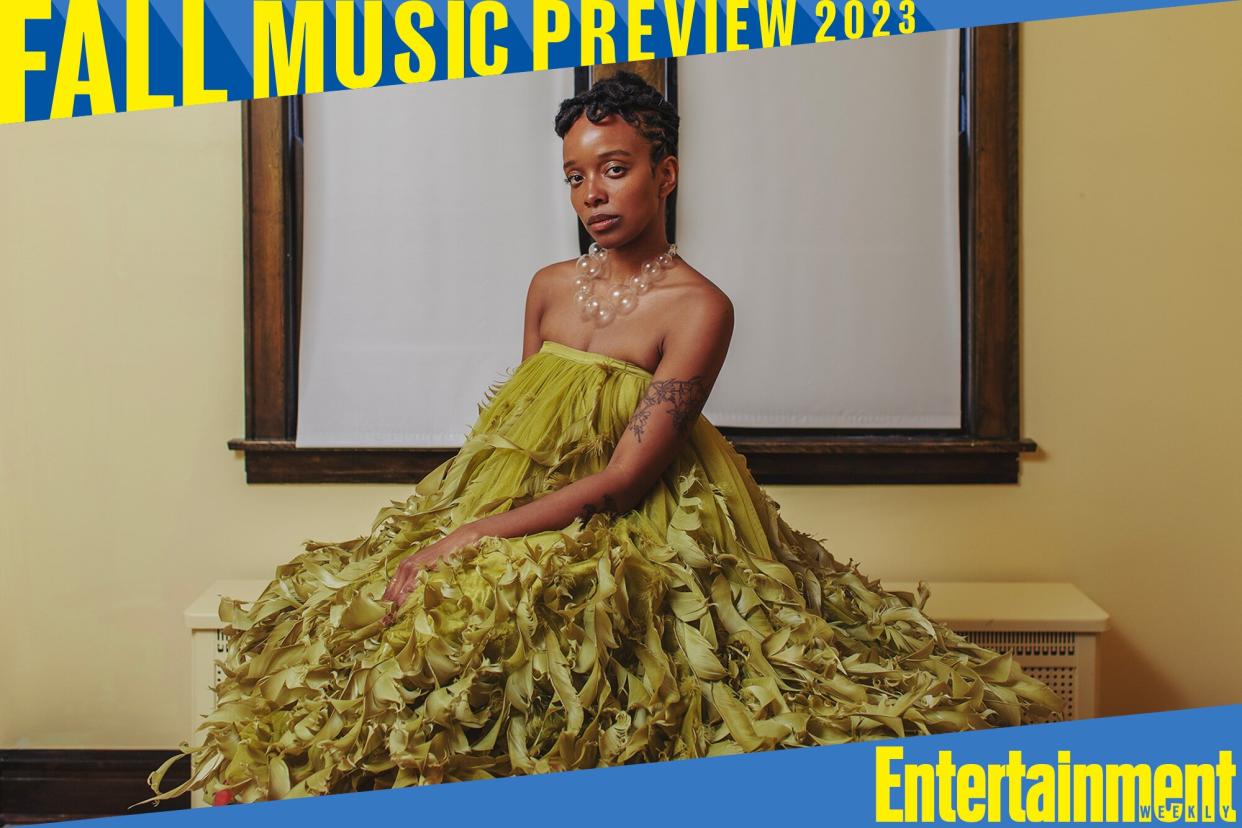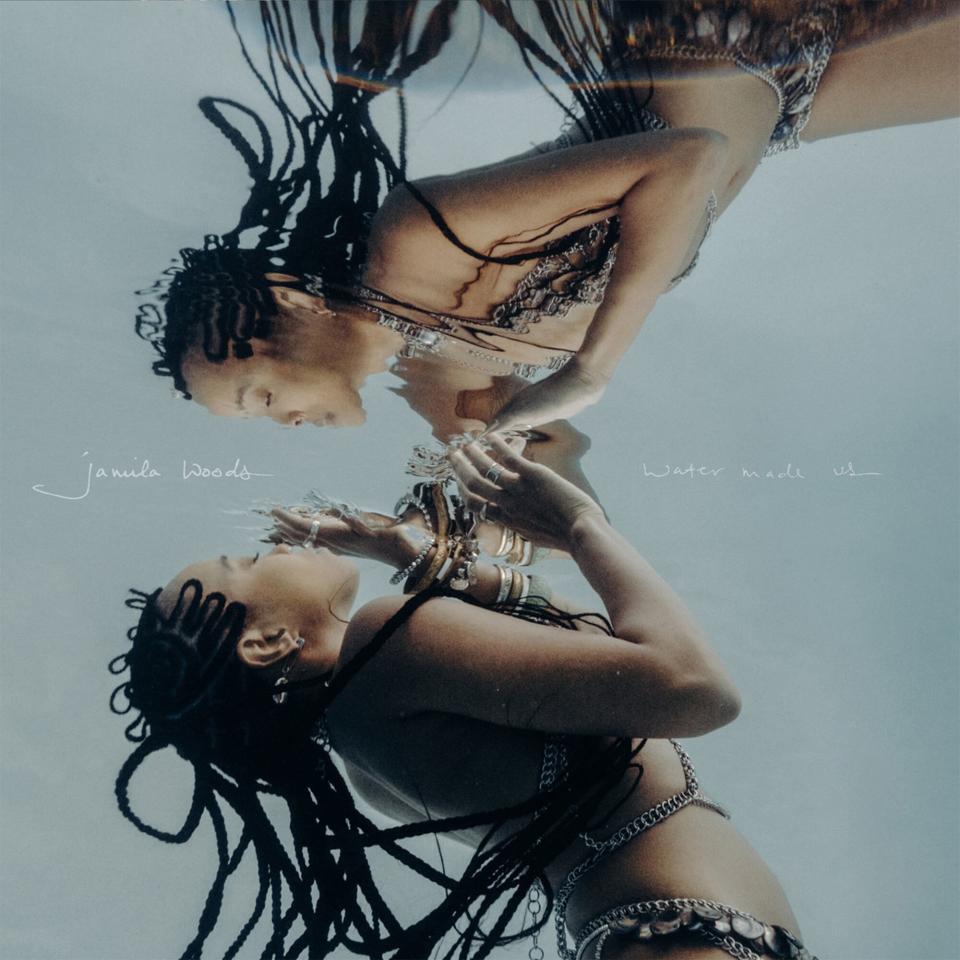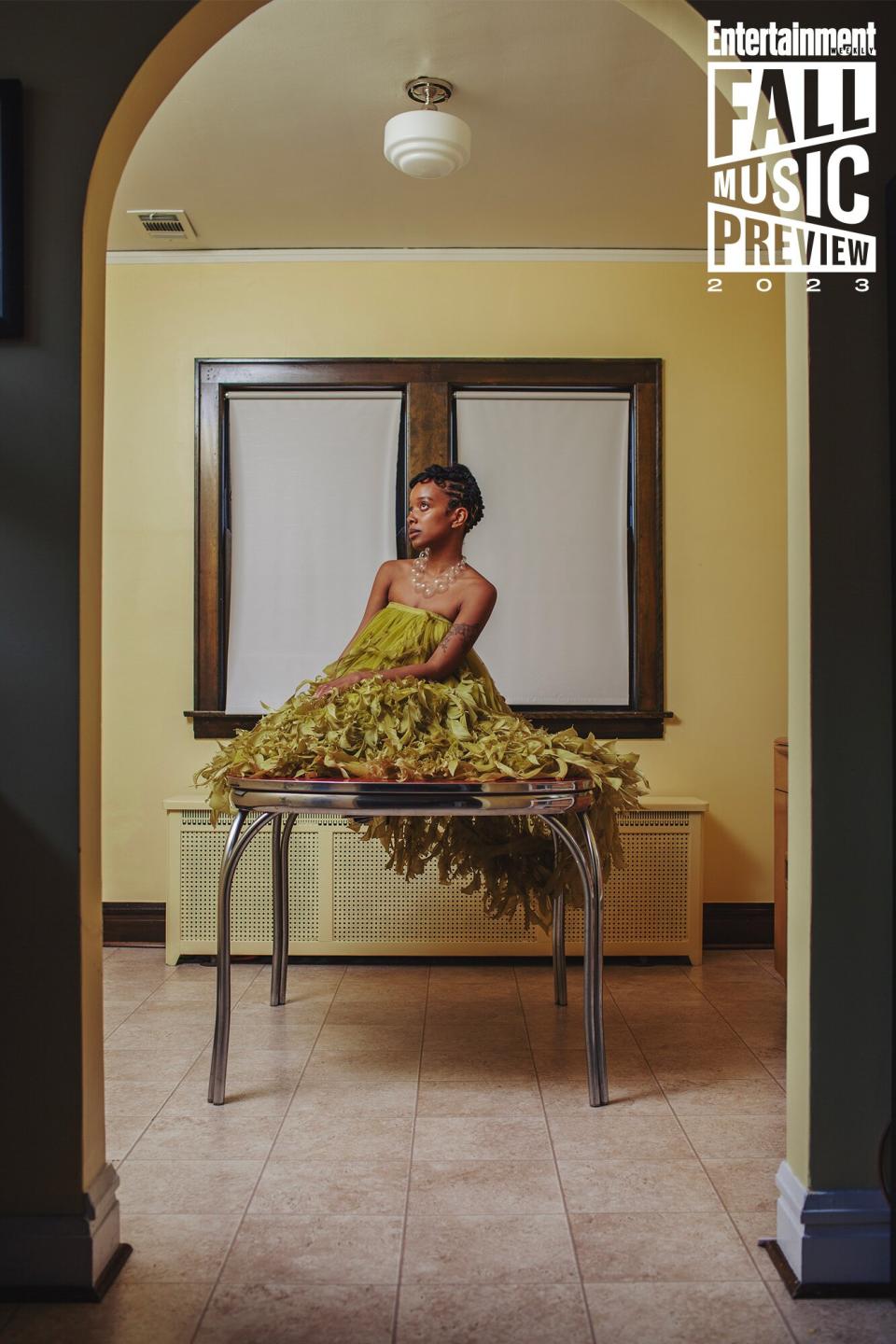Jamila Woods wrote an album about love — and dared to tell the truth

- Oops!Something went wrong.Please try again later.
Jamila Woods' 2019 album, Legacy! Legacy!, arrived with an alluring conceit: Each track would pay tribute to one of her Black or brown heroes, its title taking their name. Weaving together funk, soul, and jazz-infused hip-hop, the poet and songwriter celebrated 20th-century icons and iconoclasts ranging from James Baldwin and Jean-Michel Basquiat to Frida Kahlo and Eartha Kitt while also illuminating the uphill battles they faced. "Muddy," about Muddy Waters, commemorated his profound influence on rock music but also underscored the Black appropriation at play as the blues made its way to the white masses through white performers. "They can study my fingers / They can mirror my pose," Woods sang. "I think they forget what our history is / What we do, what we made."
If Legacy! Legacy! was a sweeping portrait of Black excellence and discontent, it was also Woods' way of processing frank conversations she'd had with her mother and grandmother about their own histories — in particular, their relationships with men, and how they may have eventually affected her. In the guise of all those famous personas, she could start to unravel her own complex emotions and start to break cycles without risking total vulnerability.
"In Legacy, there's a very strong protective layer," Woods says over Zoom, draped in a cozy patchwork wool hoodie, striking snake drop earrings dangling from her ears. "'Eartha' or 'Sonia' or 'Frida' are all songs about my relationship experiences, but titled and framed in such a way that you don't necessarily assume that. I think there was a level of safety in that to me, a level of unf---withable-ness."

Jamila Woods Jamila Woods
On her forthcoming third LP, Water Made Us, Woods has stripped away both the armor of Legacy! Legacy! and the politics of her 2016 debut, Heavn, a work that honored Blackness, Black womanhood, and her native Chicago at an inflection point marked by social upheaval and protests against police brutality. With what she describes as her most personal album yet, she tackles her past relationships head-on — what she's lost from them, and what she's gained.
The idea stemmed from an intense period of introspection following the COVID-19 lockdown. "Everyone had to find things to cling to a little more at that time, whether it was bread or plants or whatever," Woods says, "and I think for me, it was definitely journaling and a lot of reflecting, and reading about love and different dynamics and attachment styles." She is fresh off another stretch of deep introspection, though this one had been planned in 2019 (and soon after, delayed). Earlier in September, she was tucked away in a 15th-century castle in Umbria, Italy, finishing her stint at Civitella Ranieri, a six-week residency that welcomes selected writers and artists from all over the world.
Looking through the many songs and journal entries she'd written over the course of several months during the pandemic, Woods discovered certain themes emerging, themes that sessions with her therapist and astrologers reinforced. She eventually opened up about it to L.A. musician Chris McClenney (a.k.a. McClenney), whom she'd enlisted to executive-produce her next record with her. "I was talking to him about how I'd journaled about the phases of relationships I go through, and the different moods, and he was like, "Oh, it'd be great to make the album feel like we're moving people through those phases."
Water Made Us is sequenced, through its storytelling and arrangements, to capture the various stages of love and partnership: hesitation, infatuation, negotiation, rupture, regret, grief, gratitude, and wisdom. On the bracing lead single "Tiny Gardens," a reluctant Woods refrains from grand gestures and plays it cool as she cultivates a budding romance: "It's not gonna be a big production / It's not butterflies or fireworks / Said it's gonna be a tiny garden / But I'll feed it every day." She is buried in the rubble as that romance collapses on the forlorn "Wreckage Room." In the vivid spoken-word "I Miss All My Exes," she conjures old flames, acknowledging the impression each of them left on her, over a beautiful lone trumpet. The title of the album comes from a line in "Good News," in which she admits her mistakes then accepts them, confident she'll love again: "The good news is, water always runs back where it came from," Woods sings. "The good news is, water made us."

Jagjaguwar Jamila Woods' 'Water Made Us'
Water is a recurring motif in her music, partly because of something she read from novelist Toni Morrison and thinks about often. "She talks about water having a perfect memory and writers being like water," Woods says. "They tried to straighten out the Mississippi River for buildings and stuff, but the water floods because it's remembering where it was before. Writers do that, trying to get back to our source or whatever our truth is. When I revisited that quote, I was like, 'That's what this feels like.' So much of making this album has felt like seeking and not being sure where exactly I was going."
Water Made Us is swimming in symbolism. Opener "Bugs" ends with Woods reciting a poem she wrote: "Don't kill this love. Slide a little paper under the glass. Let a few bugs live." Tracks like "Thermostat," "Backburner," and "Tiny Garden" are extended metaphors. "I felt like a lot of the songs were finding a lexicon to describe these particular feelings or patterns I have," Woods says. "Now I can say to my friends that I'm having a 'tiny garden' moment — I am moving really slow in this thing, and the other person's moving really fast."
In addition to McClenney, she tapped rapper Saba and producer-composer Peter CottonTale (past collaborators and fellow Chicagoans) and New York soul singer Duendita (who provides the bridge on "Tiny Garden") for guest spots. Just as resonant as those cameos are the voice memos from Woods' friends and family scattered throughout the record, including one called "Out of the Doldrums," in which her great uncle recounts how his wife of 50 years tamed his roguish ways and saved him so long ago.

Jamila Woods Jamila Woods
That interlude segues into the standout "Wolfsheep," a devastating folk ballad detailing just how much a breakup can leave us reeling. "Everybody's good / No one is," Woods sings, delivering the album's most haunting line, and what may be its greatest epiphany. "It's kind of precarious to invest in goodness as a form of valuing yourself," Woods says. "People want to have this idea that we're good, but then what happens when we say something hurtful or we break someone's heart who we love? Then now are you no longer good?"
As the bond disintegrates, the lines blur. Closure doesn't always come. But Woods insists we can have closure in how we choose to tell the story. Elaborating on the inspiration behind "Wolfsheep," she says, "I think I was noticing a shift in myself with that particular relationship. I was writing about how I didn't want to feel like just the victim. Yeah, this person really hurt me, but how did I attract this person to myself? Or how did I participate by staying in this relationship? This person had a lot of hurt, too, that I was triggering in them. I'm not just the hero of the story."
Our conversation turns to astrology ("Every year I try to do a reading," Woods says) and how it continues to guide her through her creative process, to push her toward the deep end. One of the three astrologers she consulted while writing and producing Water Made Us helped assuage her insecurities about being at the center of it all. Was there enough weight to it? Was it too much of a departure from her first two albums? "I don't think I even voiced that to him," Woods recalls, "but he was just saying, 'Wow, whatever you're making now, it's healing the throat chakras of the women in your bloodline who weren't able to express how they felt about their relationships or have therapy.' And I was like, 'Whoa.'"
Woods chose to be vulnerable, for her idols and ancestors but also for herself. "There's a kind of shedding with this that feels important to growing as an artist," she says. "There's lots of Toni Morrison and Bell Hooks and Nikki Giovanni on this album — it's in me, so it's still there. But I'm letting myself be at the forefront."
Which brings us to those snake earrings she's wearing. "They're a really good support animal for change, and I feel like this year has been a really good lesson around change and transformation," Woods says. "I'm a Taurus rising, Libra sun, and I've been leaning into Taurus earthy energy the past few years. I got an astrology reading from an herbalist at one of my residencies. She was like, 'They say Tauruses are stubborn, they don't like change, and it's not so simple. It's like where you are, it's really comfortable, and then where you end up, you're also going to be really comfortable there. It's the middle bit that's really hard.'"
She continues, "I think I'm in one of those moments now. In all the areas of my life, it feels like things are about to be really different. I just don't fully know how."
Water Made Us is out Oct. 13.
Make sure to check out more of EW's 2023 Fall Music Preview, including interviews with Dogstar and Troye Sivan, plus our roundup of the biggest albums of the season.
Related content:

